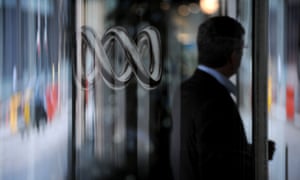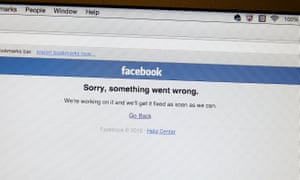Galtung and Ruge (1981) defined a set of news values to explain how journalists and editors decided that certain stories and photographs were accepted as newsworthy, while others were not.
The following list is adapted from their work:
Immediacy: has it happened recently?
Familiarity: is it culturally close to us in Britain?
Amplitude: is it a big event or one which involves large numbers of people?
Frequency: does the event happen fairly regularly?
Unambiguity: is it clear and definite?
Predictability: did we expect it to happen?
Surprise: is it a rare or unexpected event?
Continuity: has this story already been defined as news?
Elite nations and people: which country has the event happened in? Does the story concern well-known people?
Negativity: is it bad news?
Balance: the story may be selected to balance other news, such as a human survival story to balance a number of stories concerning death.
Classwork/Homework
How has new and digital media technology changed Galtung and Ruge’s news values?
How would you update them for 2015?
In a blog post, write how EACH news value has been affected by the growth of new and digital technology.
Immediacy is more important than ever due to news breaking on Twitter or elsewhere online. However, this in turn changes the approach of other news sources such as newspapers as the news will probably already be broken so different angles might be required. Newspapers now contain more comment or opinion rather than the breaking story.
Familiarity: The internet isn't just exposed in Britain. There are many stories and many ways to access it around the world. As the internet is accessed anywhere we can get stories from around the world, we can see and hear the stories and the people around the world can read the stories from Britain.
Amplitude: News stories about protests or riots generally create a lot of media attention and are widely talked about therefore reporting these stories is likely to appeal to the audience as it is always an interesting topic.
Frequency: Some stories from a specific category are always in the news as they generate a lot of attention from the audience because people are interested in this type of content. For example rape or murder cases are always a major news story when they occur as they are seen as inhumane and typically create the same response every time but still manage to remain popular.
Unambiguity: Unambiguity is important because more and more people want clear and definite news. People want to make sure that they news that they're reading is accurate and usually through citizen journalism videos that are published on-line, do people believe in the news that they see.
Amplitude: News stories about protests or riots generally create a lot of media attention and are widely talked about therefore reporting these stories is likely to appeal to the audience as it is always an interesting topic.
Frequency: Some stories from a specific category are always in the news as they generate a lot of attention from the audience because people are interested in this type of content. For example rape or murder cases are always a major news story when they occur as they are seen as inhumane and typically create the same response every time but still manage to remain popular.
Unambiguity: Unambiguity is important because more and more people want clear and definite news. People want to make sure that they news that they're reading is accurate and usually through citizen journalism videos that are published on-line, do people believe in the news that they see.
Predictability: New and digital media has made news stories a lot more predictable as they tend to post similar stories to the past. It is predictable that Google will take over advertising as they are such a huge institution however it is much easier to piece parts of this story together using different news providers than it would be by using a physical newspaper.
Surprise: Having news stories that are unpredictable tends to create a social media uproar especially on Twitter which wouldn't be possible without the developments in technology. It allows various users to share their views on unexpected events and for this news to travel very quickly worldwide.
Continuity: Additionally continuity is affected as social media platforms do not have a certain agenda backing them up, it is usually stories that people find interesting and may differ and not always be the same. This can be interlinked with balance, as they don't need to alter the order on news being presented social media.
Elite nations and people: Social networking sites such as Twitter and Facebook allow elite people to portray themselves in the way they want but the things they post and tweet can form a news story if it is significant. This is less possible with printed newspapers as the articles are formed by these people's actions rather than words meaning social media allows scope for these "elite" people to be judged.
Negativity: Bad news is the easiest kind of news to deliver whether it is online or paper based as audiences seem to be majorly interested in it- it creates a topic for discussion. It can be easily delivered on a channels main news bulletin or online and create a worldwide response much faster for example the Madeline Macann case.
Balance: It is easier to balance out negative stories with a positive one through television or for tabloid newspapers as they can compliment the person for broadsheet it is much harder unless something significantly important happens such a female MP is elected or running.
Update for 2015:
I would get rid of unambiguity as nobody tries to figure out what a news story means if it doesn't make proper sense and I would add in a positive news value as positive news stories aren't only used to balance out the bad news, they deliver information to the audience too.


